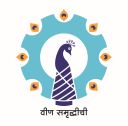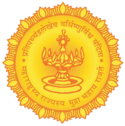Objectives & Functions
Objectives
- To achieve the production, financial and employment milestones laid out by the Textiles Policy of the state.
- To attract investments into the sector, with a thrust on focus sub-sectors.
- To increase direct and indirect employment generated by the sector.
- To provide an economically conducive, interconnected and growth focused business environment for the development of the sector.
- To promote state of art infrastructure and technological upgradation across the sector to reduce costs and improve efficiency.
- To increase the processing capacity of raw materials produced in the state.
- To promote women empowerment and incorporate gender mainstreaming in the textiles industry by encouraging participation of women at all levels.
- To provide support for skill development and capacity building and ensure availability of skilled manpower.
- To promote need based and industry focused research, development and innovation in the sector.
- To promote environment friendly processes/technologies.
- To ensure ease of doing business in the sector and provide a unified platform for existing and potential public and private sector stakeholders.
- To promote and develop the technical textile sector in the state.
- To preserve, promote and develop the traditional textiles through continued policy support.
Functions
- Implementing the Integrated and Sustainable Textile Policy 2023 – 28
- Disbursing incentives, subsidies and monitoring of operations for the following sub-sectors of the textile industry in Maharashtra:
- Ginning and Pressing
- Spinning
- Powerloom
- Handloom
- Processing
- Knitting,Hosiery and Garmenting
- Sericulture
- Traditional Textiles
- Wool
- Non-Conventional Yarn/Fibre and Synthetic
Yarn/Fibre - Technical Textiles
- Implementing Central and State Government.
- Administrative management of the fiel units and various corporations functioning under the Department.
- Monitoring the functioning of all textile units.
- Progressively achieving paperless offices and introducing suitable Information Technology tools towards process automation.
- Proactively providing information for intiatives by the Department through various channels.
- Implementing flagship programs in various domains identified from time to time.
- Promoting IEC, conferences, workshops, webinars and exhibitions to improve stakeholder participation in the textile sector.


